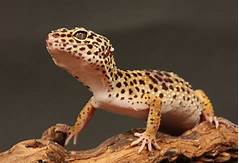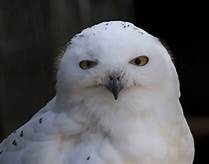Can You Keep an Otter as a Pet?
Otters are playful, energetic creatures that make captivating pets. However, before you decide to bring an otter into your home, it's crucial to understand the complexities of caring for this unique animal. Otters require extensive time, space, and specialized care, and their needs may not align with every potential owner. In this article, we'll cover important considerations related to keeping an otter as a pet, including specific requirements, legal obligations, and the ethical concerns surrounding otter ownership.

Legality and Regulations
Before considering acquiring an otter as a pet, it's essential to check the legality of owning an otter in your region. Laws and regulations vary across countries and states, and otter ownership may be restricted or even prohibited in certain areas. Some regions require permits or licenses to keep otters, while others may have specific rules regarding their care and handling. It's crucial to research the legal requirements in your jurisdiction to ensure compliance and avoid potential legal complications.
Habitat and Enclosure Requirements
Otters are semi-aquatic animals, and their enclosures require both land and water components. The ideal setup would include a large tank or pool for swimming and diving, as well as a dry area for resting and playing. The habitat should be meticulously maintained to ensure clean, fresh water and a sanitary environment. Additionally, otters need ample space to move and explore, so the enclosure should be spacious enough to accommodate their active lifestyle.
Diet and Nutrition
Otters are carnivores and their diet primarily consists of fish. They require a balanced and nutritious diet that meets their specific nutritional needs. This includes a variety of high-quality fish, as well as supplements to provide essential vitamins and minerals. Otters have a relatively high metabolism and need to eat frequently, so it's essential to establish a consistent feeding schedule and ensure they have access to fresh food and water throughout the day.
Behavioral Considerations
Otters are social and playful animals, and they thrive in pairs or groups. Keeping a single otter may lead to loneliness and behavioral issues. If you decide to have multiple otters, it's important to provide them with ample space to interact and play. Otters are also known for their mischievous and curious nature, so otter-proofing your home is essential to prevent accidents or damage. Additionally, otters require regular mental and physical stimulation to stay happy and healthy.
Ethical Concerns
Keeping otters as pets has raised ethical concerns among animal rights advocates and conservationists. Otters are wild animals with complex social and environmental needs that are often difficult to replicate in a domestic setting. Additionally, the capture of otters from the wild for the pet trade can disrupt their natural populations and ecosystems. Therefore, it's essential to consider the ethical implications of keeping an otter as a pet and make an informed decision that aligns with animal welfare and conservation efforts.
Conclusion
The decision to keep an otter as a pet should be carefully considered. Otters require extensive care, specialized enclosures, and a diet tailored to their unique nutritional needs. In addition to the practical challenges, there are also ethical considerations and legal obligations to take into account. If you're considering getting an otter, it's crucial to thoroughly research the requirements, consult with experts in otter care, and make a commitment to providing the best possible environment for your pet. It's important to prioritize the welfare of the animal and ensure that their needs are met in a responsible manner.
Declaration: All article resources on this website, unless otherwise specified or labeled, are collected from online resources. If the content on this website infringes on the legitimate rights and interests of the original author, you can contact this website to delete it.





